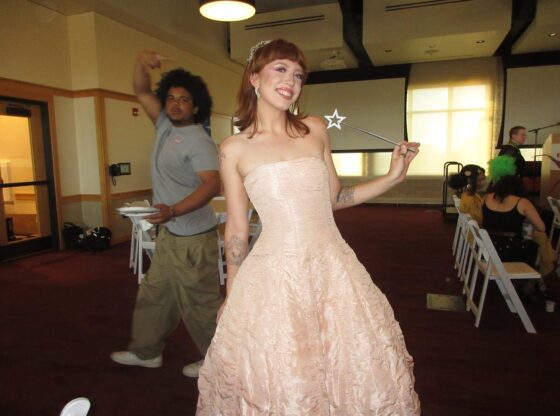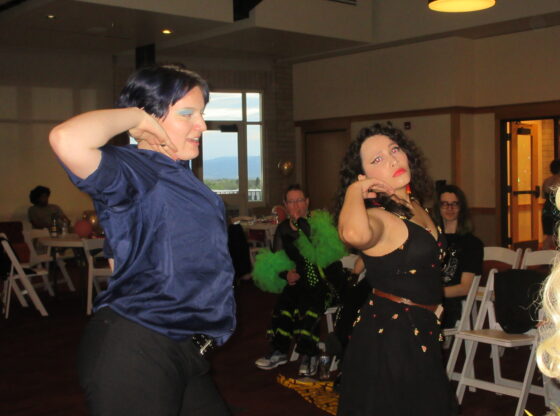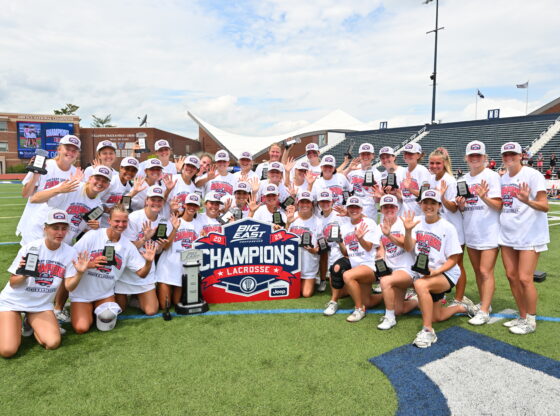Things are changing in today’s world. Global warming, famines, new political leaders – understanding it all is a complicated task.
Barry Hughes, a Graduate School of International Studies (GSIS) professor, has been doing research on global change for almost 30 years. He created a computer simulation called International Futures to help people view, analyze and pose questions about the future of our world.
That research is the reason why Hughes won the John Evans Professorship. It is the highest award bestowed by the university on its faculty and is given in honor of distinction for outstanding research or other scholarly achievement. It is based upon the recommendation of current Evans Professors.
Hughes is one of six faculty members to receive an award from the Faculty Senate. The awards will be given out at the Faculty and Staff Awards Convocation in the fall.
Hughes’ simulation has been used by a number of prestigious organizations, including the CIA, European Commission and National Intelligence Council.
“It was developed for education purposes to help people think about global change,” said Hughes of the simulation. It allows people to look at global trends related to demographics, social change, environmental change and much more.
Hughes is also responsible for establishing the undergraduate international studies program in the GSIS.
He sees his role as a professor as a combination of teaching students the material and teaching them useful skills.
“Being a good teacher generally is helping people learn inquiry, motivation,” said Hughes. “If I can step back a little bit and help students find their own approaches to things, that’s going to be more beneficial in the future.”
The highlights of his efforts as a teacher are seeing his students succeed.
“One of the most gratifying things, especially for an older teacher like me, is to see students who have gone on to be successful in their professional lives.”
For Hughes, teaching is rewarding, but so is being recognized by fellow professors for his work.
“It’s tremendously gratifying,” said Hughes of winning the Evans Professorship. “After being at DU for 28 years – it’s longer than I’ve ever been any place in my life – I have a tremendous sense of community with the university, and to have the university honor me with this award is just special.”
Hughes said he will continue with his current research for the rest of his professional career, which will be getting a boost in the coming years with the establishment of the Frederick S. Pardee Center for International Futures, which will be located in the new annex being built on Ben Cherrington Hall.
Research is not the only thing recognized by the Faculty Senate, however. Teaching is awarded, too.
Susan Sadler, associate professor in biological sciences, received the Distinguished Teaching Award.
“I was just honored,” she said. “This is an award that truly highlights teaching.”
The Distinguished Teaching Award is given to a faculty member who has been at DU for at least three years in recognition of excellence in teaching that has a constructive influence on students.
As a student, Sadler had teachers she viewed as role models, so she tries to be one for her students.
“(My role is) to get students to look at learning in a different way. To succeed, you have to engage,” said Sadler.
Her high school chemistry teacher was one person she saw that really engaged the students. “He was the one teacher,” said Sadler, “who took the time to ask me what I enjoyed outside the classroom.”
Sadler has been at DU since 1989. Her teaching focuses on introductory biology, physiology and nutrition. She holds a PhD in pharmacology.
After 20 years at the university, she said she cannot focus on any particular moments because she sees so many positive things during her time here.
“Every year there are special moments,” said Sadler. “It’s those ‘aha’ moments that keeps you going as a teacher.”
Settled in a career that she enjoys, Sadler advises students to do the same: “Find what you enjoy and then create a career around that.”
Four other professors will be given awards in the fall from the Faculty Senate. Jack Donnelly, GSIS professor and director of the PhD program, received the University Lecturer award. Daniel McIntosh, psychology professor, received the United Methodist Church University Scholar/Teacher of the Year Award. GSIS Professor Micheline Ishay received the Distinguished Scholar Award. And, Michelle Meyer, an adjunct faculty member, received the Ruth Murray Underhill Teaching Award.










